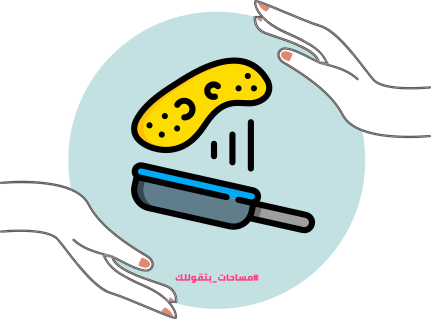Toxic Relations and how to deal with them
Toxic relationships are present around us, and they might be practiced on us or we’re personally practicing them unconsciously. And this appears in romantic relationships, friendships, family, work and others.
Through this quick guide we’ll put together: What are toxic relationships? How to identify them? How to deal with them for our own psychological, spiritual and social well-being?
But before we start, we should keep in mind that if we find that we practice this, this would be in itself an unhealthy and unacceptable behavior, but choose to take this article and the referenced readings as the start of something positive, the motive for personal and social growth, accepting one’s self, respecting the other, and dealing with a painful past; to modify the settings of the present, and enhance our behavior towards ourselves and others in the future.
Definition of Toxic Relationships
Toxic relationships are the relationships that are characterized by certain behavioral patterns, like denial or disregarding the other parties’ feelings, communication within them is not reciprocal, there always has to be a victim in the middle. Heard about this before? Truth is, toxicity (and violence) are not foreign to different communities, and they are usually formulated due to the different oppressions that surround them or are present within them.
12 Questions to Recognize a Toxic Relationship 1
:
1)Does the other party overreact, or create a scene out of nothing?
2) Is there emotional abuse to fulfill their demands against your will?
3) Do they ask continuously for unrealistic things?
4) Is there an attempt to control you? (My way or the highway!)
5) Is there constant criticism and comparison to other people?
6) Is there good listening to you? (Good listening consists of 4 stages: Listening carefully and avoiding distractions, to come up with key points from what I’ve heard, to ask open questions without the use of a tone that has any judgments to achieve further understanding to what was said, to summarize what you’ve understood from the talker and assure that you’ve understood correctly from his/her point of view and not yours)
7) Is there manipulation, like the person making you feel guilty or playing the role of the victim?
8) Is there constant blame or attack?
9) Does the other party take responsibility for his/her actions and apologizes (Without “But I….”)?
10) Does the other party respect your emotional and physical boundaries? (In the meaning of, when we express that we are upset and don’t want anyone to talk with us for a while, we don’t want to be touched, or we want to be touched in a specific way, does the person respect that?)
11) Do they ignore or deny your needs or feelings?
12) Are they envious or competitive with you?
(If the negative aspects in these questions have been happening chronically, this is a sign that we’re in a toxic relationship)
The effect of toxic relationships grows larger the longer this effect continues, and it’s not dealt with. And this effect, affects one’s self-confidence, the decisions he/she makes, and definitely his/her social relationships; the romantic, the personal, and the practical.
6 Strategies to Protect One’s Self (Detox) 2
Denial won’t change a thing!
Admitting it to ourselves first before anyone else, that we’re in a toxic and harmful relationship; is the beginning of the solution. “Love” and family and all these stuff are not an excuse for someone or for us to practice toxic behaviors.
Boundaries are Beautiful
The first and essential line of defense is to reduce my interaction with these toxic people, and surround myself with positive people.
I am not obliged to justify to anyone why I am reducing interaction, if I don’t want to. In the case of family or partners that we have to be with, it’s preferred to speak with a psychological specialist so he/she can provide us with some daily practices that can help us.
“Non-stick Pan” Strategy for Reaction Management
The frying pan is solid; clear and strict boundaries:
- Strict as in saying no to any illogical demands. Meaning if someone bullies me, I clearly say “I won’t stay here, if communication remains in this same manner”
- Clear means basically clear to me, we can try to take notes in a notebook about how we feel, before, during, and after these situations. Also what was said as it was said, and how I behaved.
Non-stick as in Slippery
Never take it too personal! You enter a space with toxic people imaging a glass board surrounding you, and hurtful words hit it and you see the words sliding in front of your eyes on the slippery glass, but they won’t touch you.
You are not obliged to justify, that’s it.
“I will not be able to do so and so because I am busy, or (I can’t)” is enough, any attempt to explain to someone who isn’t listening, isn’t understanding, and isn’t appreciative, won’t bring us anything but disappointment.
A window that only brings wind… fill it up with concrete
Trust your instincts; if you feel you have tried and communicated clearly, and yet there is no improvement, then it’s time to ask “Why am I staying in this relationship?” (And this applies in anything: Work, friendship, romance….etc)
Never ever normalize abusive relationships!
Their abundance, and us going through them and tolerating them for long periods in our lives before, is absolutely not an excuse for their presence to remain “Normal”.
Dealing with this comes with practice. And don’t be frustrated if you fail sometimes, or if you behave in a toxic manner other times, growth is not a straight line, we’re human beings. But trust that, with time and practice, you will discover lots of things about your thoughts and relationships with those around you.









